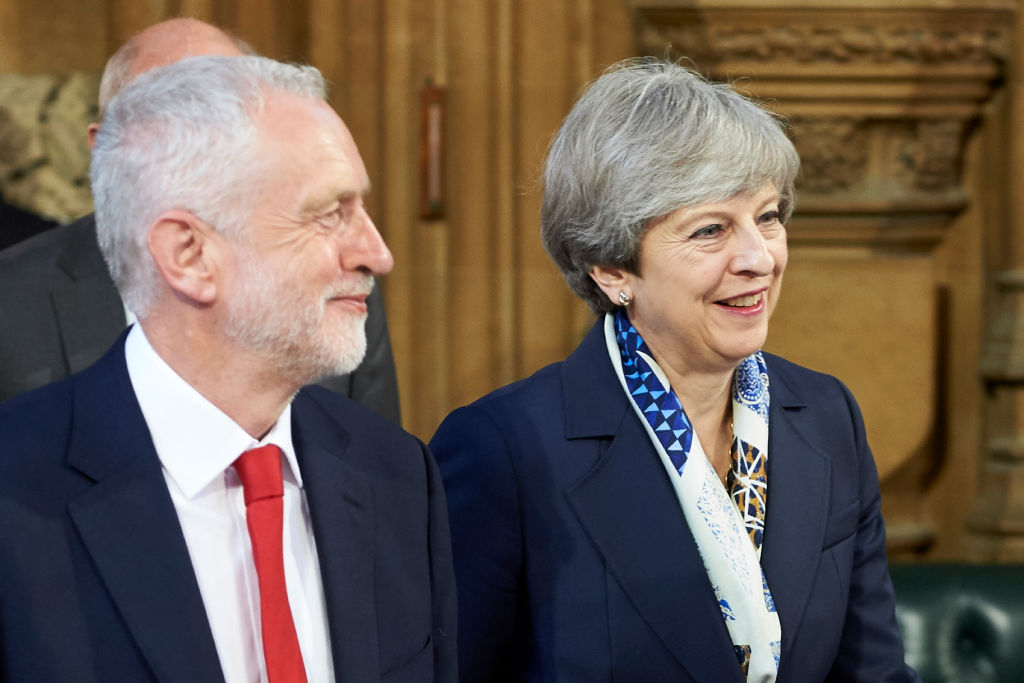The Commons has grown rather used to Theresa May giving an update on Brexit each Monday afternoon, and still more used to the Prime Minister offering precious little in the way of new information each time she does so. Today’s statement was a little different, in that May is now asking MPs for more information, rather than MPs turning on her and accusing her of not telling them anything.
She laboured rather heavily on the point that Jeremy Corbyn has so far refused to attend the cross-party talks designed to work out an agreement that the Commons can stomach, introducing it early in her statement, and returning to the point again after the Labour leader had finished talking. She claimed that the government had ‘approached these meetings in a constructive spirit, without preconditions, and I am pleased that everyone we met with took the same approach’, adding:
‘I regret that the Right Honourable Gentleman the Leader of the Opposition has not chosen to take part so far. I hope he will reflect on that decision. Given the importance of this issue, we should all be prepared to work together to find a way forward. And my ministerial colleagues and I will continue with further meetings this week.’
Later, she told Corbyn that ‘it would nice just to have some talks with him’, accusing the Labour leader of making claims about discussions in Downing Street which he had refused to attend.
Corbyn’s rejection of the Downing Street invitation has turned out to be a bit of a gift for May, as she can deflect attention from her own procrastination and failures in people management onto the Labour leader. She now has someone else to blame for the ongoing struggle to reach an agreement on Brexit.
She also appeared to invite MPs to put the matter of a second referendum to a vote, not just in order to kill talk of it off through a Commons defeat, but presumably because this will force Corbyn to take a position on a matter which he has been very reluctant to approach.
But she didn’t just tell the Labour leader that he needed to put more legwork into finding a solution. May also asked MPs for more information on a number of aspects of Brexit, particularly on the sort of future arrangement for the Northern Irish border that might satisfy the Commons. She also promised to involve parliament more in the decision-making process, announcing a series of confidential committee sessions at which MPs could obtain more information about the negotiations. This was clearly an attempt to stave off the bids by MPs like Dominic Grieve to give Parliament control of the Brexit deal.
Jeremy Corbyn may be reasonably easy for May to attack at the moment, but the MPs who want to be more involved are far trickier. As we have seen in the responses to her statement from backbenchers, she may have opened the door of Downing Street, but MPs aren’t really sure if she’s actually listening to them when they walk through. Brexit Select Committee chair Hilary Benn told her that her door may have been open but her mind remains closed. It’s all very well pointing out that you are holding talks, but MPs will swiftly turn away from them if they turn out to be merely a talking shop, rather than the listening exercise that they want.







Comments